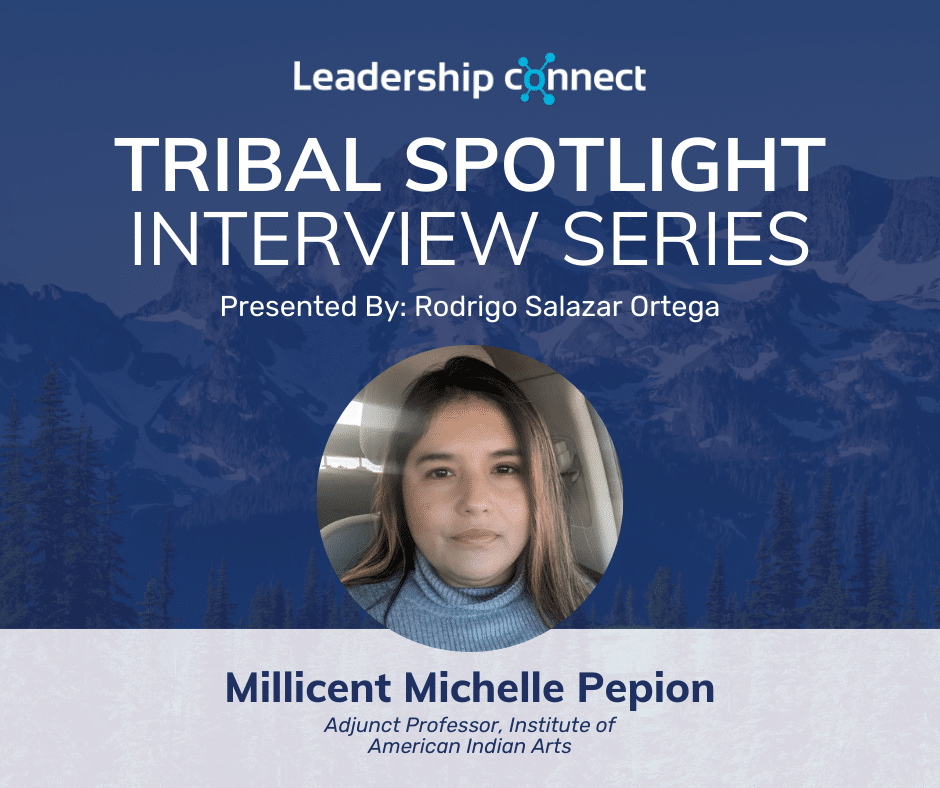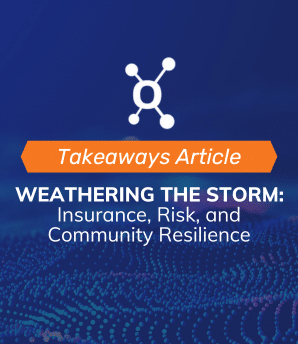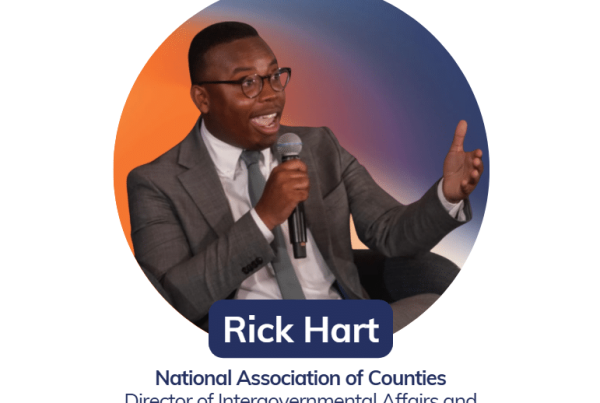Millicent has built a remarkable career rooted in her passion for education, community engagement, and advocating for Tribal sovereignty. As a member of the Navajo Nation, her journey in academia and Tribal leadership is a testament to her dedication to both preserving her cultural heritage and empowering future generations. Millicent’s work reflects a deep commitment to bridging traditional values with modern governance structures.
Takeaways:
- Bridging traditional practices with modern governance requires deep listening and engaging with all levels of the Tribal community.
- Persistence and community-driven work are key to overcoming challenges and achieving meaningful outcomes, such as preserving language and culture.
- In Tribal Government Relations, building trust with both formal leaders and community members creates stronger, more effective governance structures.

Can you tell me about your career path that has led you to where you are now?
I’m an enrolled member of the Navajo Nation, and I was primarily raised in Phoenix but currently live in Mesa. My journey into professionalism began at Haskell Indian Nations University in 2009, which was an incredible experience. I didn’t really know what it meant to be a Native person until I got to Haskell and met like-minded people who shared similar backgrounds. From there, I earned my associate’s degree, but I knew I wasn’t done. I completed my bachelor’s degree and stayed on for a master’s program at Arizona State University, focusing on Family and Human Development. Afterward, I pursued a PhD in American Indian Studies to continue breaking cycles and giving back to my community. All along, I’ve sought ways to bring what I’ve learned back to my people, whether through volunteer work, internships, or different educational opportunities.
How did you become passionate about the intersection of tech, government, and tribal communities, and how do you stay informed and engaged in those areas?
This work has always been a part of me. The work that my mom and grandma have done for the Urban Indian community in Phoenix has influenced me deeply, and it felt natural to continue their efforts. Giving back to the community that has supported me professionally has always been important. I’ve seen firsthand the real-life impact we can make in supporting people.
One thing that frustrates me is how often people, even in federal and state government, forget that Tribal Nations are sovereign nations. The treaties made between the government and our Nations were made in perpetuity—these are laws, not favors, and it’s often overlooked because treaties aren’t something that’s taught. So, part of our work is to demystify that and hold people accountable. I have to balance how I deliver that information—know the policy and law—but communicate it in a way that’s inviting, provides grace, and reminds people of their responsibility. I also love reminding people that Native history is American history; it’s at the core of this nation, yet it’s often left out.
What do you believe sets Tribal Government Relations apart as a unique work environment, and how do you navigate its challenges in your everyday work?
Working in Tribal Government Relations is unique because it requires balancing formalities with deep community connections. On one side, you have the Tribal Council, where decisions are made at an executive level, and on the other side, you have the people—those who aren’t part of formal leadership but whose voices are just as important. When I was a liaison, I had to navigate these two spaces carefully. In council meetings, I had to be more formal, but in the community—whether at a powwow or other gathering—it was important to be a listener first. People want to be heard, and it’s critical to build trust by showing you understand their concerns. Navigating this duality is challenging but also rewarding because it deepens my connection to the community.
Describe a challenging or rewarding project that significantly influenced your growth as a professional. How did you handle the challenge, and what did you learn from the experience?
One of the most rewarding projects I worked on was during my time with the Navajo language program. I was involved in creating the first Navajo language curriculum at my university, which was incredibly meaningful because it combined my passion for education with preserving our cultural heritage. It wasn’t easy. There were many logistical hurdles and even pushback from people who didn’t see the value in it. But I pushed forward, knowing how important language is to our identity as Native people. That experience taught me the value of persistence and how essential it is to stay grounded in the purpose behind the work. When we finished the program, it felt like such an accomplishment not just for me, but for my entire community.
What advice would you give to someone navigating how to bridge the gap between traditional practices and modern governance structures?
My advice would be to listen and learn from those around you. Don’t limit yourself to speaking with just one group—whether it’s the Tribal Council or the community members. It’s essential to engage with everyone, from children to elders, those employed within Tribal offices and those who aren’t. Sitting in boardrooms is important, but so is sitting in a circle around the fire or drum. You’ll learn a lot more about how to balance traditional practices with modern governance by embracing both spaces and respecting what each has to offer. Also, don’t be afraid to take what you learn in these community interactions and apply it in the more formal settings of government work.
Word Association, what is the first word that comes to mind for each of there?
- Policy – Government
- Networking – Relationships
- Communications – Community
- Leadership Connect – People






